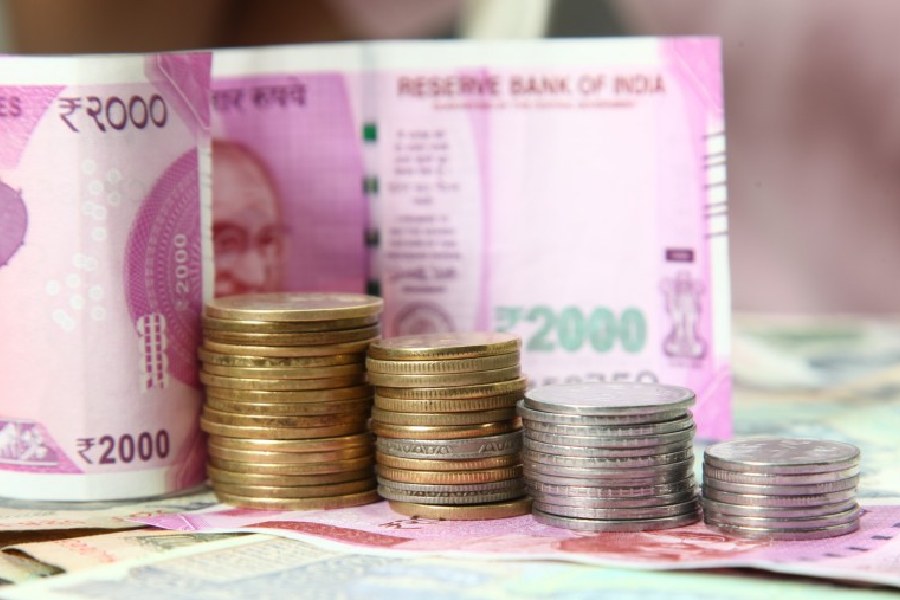Jan. 8: A Maoist leader who allegedly masterminded last year’s massacre of Chhattisgarh Congress leaders has surrendered in Andhra Pradesh, with police and rebel sources citing ill health as the reason.
G. Venkatakrishna Prasad alias “Gudsa Usendi”, 53, gave himself up with wife Raji last night.
“Prasad was ailing and we knew he was looking to escape to Odisha for treatment. He escaped our trap on one occasion before the Assembly polls in November. He had no option but to lay down arms,” Chhattisgarh’s additional director-general of police (intelligence) Mukesh Gupta said.
Rebel sources confirmed that Prasad suffered from several ailments after living in the jungles for years and wanted access to medical facilities.
Andhra police cited another reason — differences with the rebel leadership over the Bastar attack that triggered a security crackdown.
Prasad, an Andhra native, was a representative of the Maoists’ Dandakaranya Special Zonal Committee, which had claimed responsibility for the May 2013 ambush that killed 27 Congress leaders. He also oversaw the rebel’s Bengal unit after guerrilla wing chief Kishan’s death in a 2011 encounter.
Andhra police chief Prasad Rao said the rebel leader, associated with Maoists for nearly three decades, would be presented at a news conference in Hyderabad tomorrow.
Gupta, the Chhattisgarh ADG, said a team would travel to Hyderabad soon to interrogate Prasad and his wife, a rebel commander. Gupta said Andhra cadres active in Chhattisgarh often surrendered in the southern state in the hope of getting medical aid and a good resettlement package.
Prasad was a spokesperson for the Maoists’ Dandakaranya committee, one of the rebels’ most powerful units spanning Chhattisgarh, Gadchiroli in south-eastern Maharashtra, parts of western Odisha and northern Andhra.
Any Dandakaranya committee spokesperson acquires the pseudonym of “Gudsa Usendi” to keep alive the name of a young cadre who died in a police ambush in Chhattisgarh in 2000.
Prasad was active in the Maoist stronghold of Bastar for two decades, Chhattisgarh police said. According to a surrendered senior Maoist in Gadchiroli, he once edited Prabhat, a Hindi publication of the Dandakaranya committee.
The surrendered leader was dubbed the “Phantom of Dantewada”, the Chhattisgarh rebel hotbed where the bloodletting took place, because of his ability to stun with attacks and dodge the police for years. He carried a bounty of Rs 15 lakh on his head in Andhra. Chhattisgarh and other states had also announced cash rewards.
Andhra police sources said Prasad had developed differences with the rebel leadership, including chief Ganapati. According to a recent document of the CPI (Maoist), Prasad had been “drifting from the party” after the ambush in which Mahendra Karma, the leader of anti-rebel vigilante group Salwa Judum, was among those killed.
Prasad has been criticised within the outfit for the attack, with colleagues blaming it for the heavy clampdown on them by security forces in Chhattisgarh.
“Even the citadel of the Maoist group in Abhujmad had come under fire. One ambush had jacked up paramilitary forces by over 20,000,” says the document.
Prasad had justified the killings, especially that of Karma, saying the attack that almost wiped out the Chhattisgarh Congress’s entire top rung was answer to the anti-rebel Operation Green Hunt in the state’s jungles.
In the crackdown that followed the May 25 attack in Bastar district, thousands of tribals had also fled and crossed into neighbouring Andhra’s Bhadrachalam and Venkatapuram areas where they lived like refugees in settlements, officials in the southern state had said.
The tribals, the officials said, were scared they would be harassed by the forces for information and would be accused of helping the guerrillas.
Previous “Usendi” Katta Ramchandra Reddy’s wife Shanti Priya is in a Chhattisgarh prison. When a collector, Alex Paul Menon, was abducted by Maoists in 2012, one of their demands was Shanti Priya’s release. The state government had not agreed.
Prasad hailed from Kadivendi village in Andhra’s Warangal district. He was attracted to the rebels under the erstwhile Peoples War Group (PWG) after his graduation from the local Kakakiya University.
The area was once a cradle of rebel leaders including Kondapalli Seetharamaiah, a prominent figure of the Naxalite movement.










